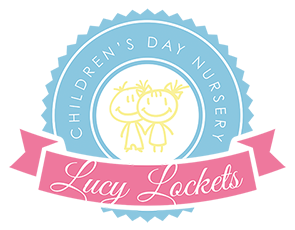Home Learning
Story Sack Launch!
Our new story sack library launches from 10th March 2025!
Borrow a sack and enjoy at home, they are free! and lots of fun.
Just look after the bits and return for another family to enjoy.
Reading with your child helps………
Development of speech and communication, expression and imagination.
Children learn a lot through their home environment, and through play and interaction with family members. Parents and carers can further support early years learning at home in a lot of ways, and we are always here to give you a few hints.
Always remember that learning is play based so if you are having fun with activities at home or whilst out and about, your child is learning!
There are lots of games and activities you can do with your child to have fun together and get them developing important skills, such as speaking and listening and developing eye-hand co-ordination. Read on for some ideas.
Home learning is fun!
having fun at home creating the solar system linking in with our space theme before Christmas.
Games and Activities
1. Sing together
Children enjoy exploring and experimenting with language and it helps them to learn new words and their meanings and also to listen to the sounds that make those words. So sing, rhyme, shout, whisper, rap and dance to the beat!
2. Painting and drawing
Give your child lots of opportunities to draw and paint. This is not only fun, but also can help to develop eye-hand coordination and control.
Let them experiment with lots of different materials – paint brushes with a range of widths, pencils, crayons, chalks and finger paint. You could try playing music when they paint and draw as this can help to create a relaxing environment.
3. Hands-on games
Use modelling clay to get creative and develop fine motor skills.
Threading beads, macaroni or cotton reels on wool or string can help with eye-hand co-ordination and control.
Joining the dots and drawing paths through simple mazes are not only fun but are a great way to develop eye-hand coordination and pen control.
Enjoy jigsaws together and chat about finding the right pieces!
4. Reading books of all kinds together
Have fun reading books of all kinds to your child: picture, words and pictures, pop up, information and poetry. Why not borrow a story sack to enjoy together?
Go to the library
Visiting the library is a great way to explore books together. The library gives your child the chance to discover, flick through and choose from a wide range of different types of books, including fiction, non-fiction and poetry. Many libraries have singing or rhyming sessions for pre-school children. Best of all, it’s somewhere fun to escape to on a rainy day!
Ask your keyworker which books they are using in the room and join in at home too!
5. Dressing up
Dressing up and role play are great opportunities for talking and listening and for imaginative play. On a practical level, a fun dressing up session can help your child to practise getting themselves dressed. You can fit in a sneaky bit of training with those tricky zips, armholes and buttons
6 Talk about numbers around you
It’s never too early to explore numbers with your child. Numbers are all around us, from calendars to the remote control, the telephone to car registration plates.
Try pointing out numbers when you’re out and about – on front doors, signs, the front of buses and train platforms. Talking about numbers around you early and often will help your child to recognize numerals and show them that numbers are part of everyday life.
7. Cook together
Cooking with your child is not only fun but it’s an excellent way to begin to talk about maths – counting eggs for a cake recipe, more or fewer toppings for a pizza think about shapes when you use cutters, Let them pour cool liquids or spoon flour to develop eye-hand co-ordination and control.
Best of all, you both get to enjoy a tasty treat at the end




